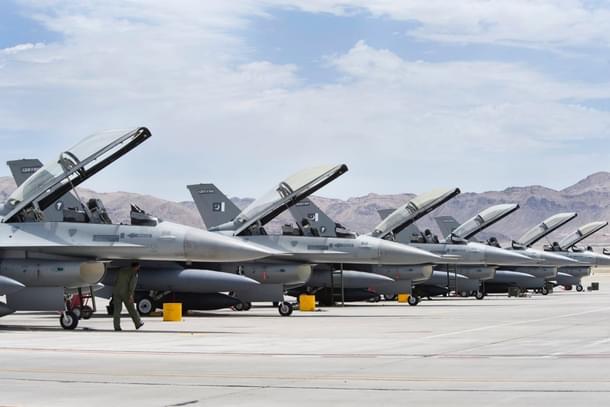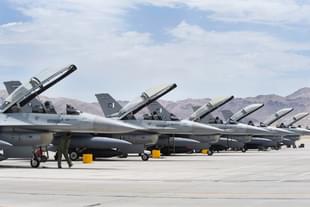News Brief
India Deploys Advanced Jamming Systems On Western Border To Disrupt Satellite Navigation Used By Pakistani Military Aircraft: Report
Kuldeep Negi
May 01, 2025, 09:48 AM | Updated 09:48 AM IST
Save & read from anywhere!
Bookmark stories for easy access on any device or the Swarajya app.


In a bid to degrade the navigational and strike effectiveness of Pakistan air force, India has deployed advanced jamming systems near its western border to interfere with Global Navigation Satellite System (GNSS) signals used by Pakistani military aircraft, India Today reported citing sources.
This deployment follows India's decision to close its airspace to all Pakistani owned and operated flights, a ban effective from 30 April to 23 May.
Indian jamming systems are capable of disrupting the multiple satellite-based navigation platforms — GPS, GLONASS and Beidou — which are used by Pakistani military aircraft, according to the sources cited in the India Today report.
The intended outcome, they said, is to cripple Pakistan’s situational awareness targeting accuracy, and the effectiveness of its precision-guided munitions during any potential conflict or incursion.
Tensions have escalated between the two nations after the 22 April terror strike in Pahalgam in which 26 people were killed.
India on Wednesday issued a NOTAM (Notice to Airmen) restricting its airspace, effective from 30 April to 23 May, to all aircraft registered, operated, or leased by Pakistan - including commercial airlines and military flights.
The tit-for-tat move came nearly a week after Pakistan barred Indian flights from its airspace.
Officials noted that Pakistan-based carriers had already started rerouting to avoid Indian airspace due to concerns over potential Indian retaliation.
With the ban now in effect, Pakistani airlines will now have to traverse longer, more expensive routes over Chinese or Sri Lankan airspace to access Southeast Asian cities such as Kuala Lumpur.
The airspace ban joins a suite of Indian responses after Pahalgam terror attack, including suspending the Indus Waters Treaty and cancelling visas granted to Pakistani citizens.
The brunt of the disruption is expected to fall on Pakistan International Airlines (PIA), which operates a modest fleet of 32 aircraft.
Flight times from Pakistan to Southeast Asia and East Asia are likely to increase by 60 to 120 minutes.
These extended routes will mean higher fuel consumption, stretched crew duty hours, and could prompt flight cancellations or reduced frequency.
Kuldeep is Senior Editor (Newsroom) at Swarajya. He tweets at @kaydnegi.





